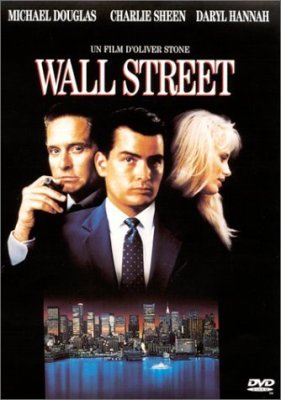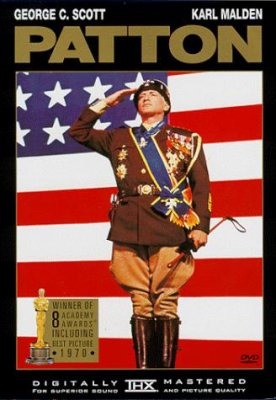Oscar winners for all time
Posted April 12, 2009 Reddit Digg this
What if they declared the Academy Awards for all time, not just one year?
And what if they were based on the most specific, truest academic criteria unaffected by studio lobbying and categorizations — in other words, Marlon Brando rightfully evaluated as a supporting actor for Vito Corleone?
A staggering number of portrayals to consider. But in the end, the most majestic list of Hollywood greatness. That prospect was too tempting to ignore.
So here they are, for the six major categories...
Best Supporting Actress — Gloria Swanson, “Sunset Boulevard”
Swanson was nominated as Best Actress, but there is only one lead role in “Sunset,” occupied by William Holden. Change has come to Hollywood, for decades actually, and as Holden’s Joe Gillis vies for his place in it, he is engulfed in its glorious past, which Swanson spectacularly represents as well as her character does. Her closing appearance is the capstone, but the scenes of her Isotta-Fraschini car linger as an awe-inspiring depiction of Hollywood wealth. “Sunset” is about Hollywood, but it’s really about how change afflicts us all and always manages to leave some treasures behind ... jets replacing trains, televisions replacing radios, CDs replacing vinyl, etc. Swanson coincidentally faced miscategorized Oscar competition from Bette Davis, in a distantly related time-passing picture, “All About Eve,” even though Davis’ co-star Anne Baxter was rightfully also nominated in this category. Swanson is the decided choice here over Davis, Katharine Hepburn’s turn in “On Golden Pond,” and Jane Darwell’s Ma Joad, also remembered best for her closing line in “The Grapes of Wrath.” It’s Swanson’s close-up that remains larger than life to this day.
Best Supporting Actor — John Huston, “Chinatown”
The most underrated Hollywood creation continues to be the villain. There isn’t a perfect formula. Some of the best are completely loathsome, others possess impressive skills, and some, in the end, actually merit sympathy. Huston’s Noah Cross fits into the first description. He is not immediately wretched; it takes time to figure it out, allowing for the masterwork of Jack Nicholson to unfold. Cross is wrong on every level, yet Huston’s stature at this point (he was 67) is capable of standing with Jack Nicholson and being declared, script-wise, the winner. There is no chance of confusing Huston’s role as that of a lead. His competition on this list stems from Marlon Brando as Vito Corleone, Michael Douglas as Gordon Gekko and Christopher Walken’s showstopper in “The Deer Hunter” as Nick. (It would be a grand gesture to include Christopher Lloyd’s Doc Brown from “Back to the Future,” but the film doesn’t seem quite weighty enough.) Brando and Douglas cannot win because their performances are too strong, overwhelming the work of the true leads of their films. It is not totally surprising that Huston, facing a gallery of characters from “The Godfather, Part II,” was not nominated for an Oscar, though one wonders how Fred Astaire garnered more votes in “The Towering Inferno.” “Chinatown” is a permanent, horrifying reminder that corruption happens in even the most splendid of places. No one should ever want to concede that Cross, who says people are capable of anything, might be right — but they won’t forget that he said it.
Best Actress — Vivien Leigh, “Gone With the Wind”
Those who consider Scarlett O’Hara a villain are not necessarily wrong. She plots against her closest friend, takes advantage of male suitors with barely a nod to propriety and views human beings as worthy of little more than their permanent classes. But there is something gorgeous about the way she does it. She is a Gordon Gekko of the 1800s, motivated by greed and social status and fully receptive to the perks they bring. But she possesses the same kind of admirable determination and street smarts that every survivor seems to have. And yes, the beauty: she beams, is cute and seemingly harmless, and even knowing fully what they’re getting, men have little problem being played by her. Maybe Rhett finally has seen enough after the loss of his daughter and Melanie, but even he might come back again too. Scarlett just feels like the South — we might’ve gotten beat, but we’re better — and even doubters can take pleasure in observing this world view. Given the significance and scale of the film, there might be minimal debate over this selection. This choice, more than any other on this list, would seem the closest to unanimous.
Best Actor — Jimmy Cagney, “Yankee Doodle Dandy”
Cagney, as George M. Cohan, is said to be “the whole country stuffed into a pair of pants” and proves it for two hours. He brings an intensity rarely if ever seen. Ready to dance at the drop of a hat, ready to scrap at the first hint of an insult, ready to compose an instant song with a production on the line, ready to wave a flag whenever the feeling strikes, which is often. The songs are classics, but extremely well-known, so there is a risk of predictability and repetition. Not with Cagney, who makes them feel like this is the first time hearing them. His work is the glory of talent and determination finding their way to the top even when we’re our own worst enemy. The bigger-picture message (circa 1942) is that non-soldiers are critical to winning a war. George C. Scott as Patton probably gives Cagney the toughest challenge for single-role staying power, but then there is Brando in “On the Waterfront,” Cary Grant in “North by Northwest,” and some other more recent legends, Al Pacino in “The Godfather, Part II” and “Serpico;” Nicholson in “Chinatown,” Robert De Niro in “Raging Bull.” Cagney’s Cohan is probably the least known of all of those, but feels the most deserving.
Best Director — Alfred Hitchcock, “Psycho”
Best Director must be biased toward later films. Actors and stories will always be relevant for their time, sometimes longer. Direction is a skill that will gradually be improved, mostly by technology but also by applying tactics of predecessors. The genre that seems best suited for directorial expertise is horror. Hitchcock’s “Psycho” must be considered the standard-bearer. It is meant for black-and-white. It is initially treated as a noir, but a couple of scenes, somehow, in their tone, signal big trouble ahead: When Marion Crane, while driving, sees her boss, and in the close-up of the police officer who pulls her over. What follows is a series of the most timely and stunning scenes in cinema, the shower, the staircase, the wig, the skeleton, the car in the pond, the fly. William Friedkin certainly delivered a legend in “The Exorcist,” though that effort is a little more reliant on gore than pure suspense. Francis Coppola wove separate father-and-son stories together in one of the greatest films ever, “The Godfather, Part II.” Quentin Tarantino elevated dark humor mightily with out-of-sequence cuts in “Pulp Fiction.” The contenders here will not include Billy Wilder, who (“The Apartment”) beat out Alfred Hitchcock (“Psycho”) for the 1960 best director Oscar. If Hitchcock had left us with pure horror, “Psycho” might not make the cut, might not feel just right. Many hardened filmgoers saw it and slept with the lights on. But beneath the fright is a healthy amount of charm that reminds us we’re in the presence of a great one, and probably will want to come back for more.
Best Picture — “Star Wars”
It could not even win a Best Picture Oscar. That went to “Annie Hall.” Perhaps it was “Star Wars” fatigue. Never, possibly, in the history of filmmaking has a movie generated such a permanent, positive buzz. Suitable for essentially all ages, at the early frontier of what we now expect in special effects, everyone wanted to see “Star Wars” in 1977 ... and 1978 ... and 1979 ... and well beyond. The drawback is that it loses something on television screens, which is how many people born after 1970 have seen it. But that can be said of many other greats like “Ben-Hur,” “Lawrence of Arabia,” “The Wizard of Oz” and “Gone With the Wind.” Some of the acting is famously pedestrian, but the story does not lack for heart. It owns perhaps the greatest film soundtrack ever. “Star Wars” is the most beautiful type of production, meant for one audience (kids and young adults) but so well done even adults regarded it with reverence. In 1977 neighborhoods were abuzz with talk of seeing “Star Wars” — not once, but five or six times. There exists greater drama, greater acting, greater suspense, greater special effects in other works. But a greater feeling than walking out of that theater in 1977 and exclaiming, “Man, what did I just see!”? We should all be so lucky.





